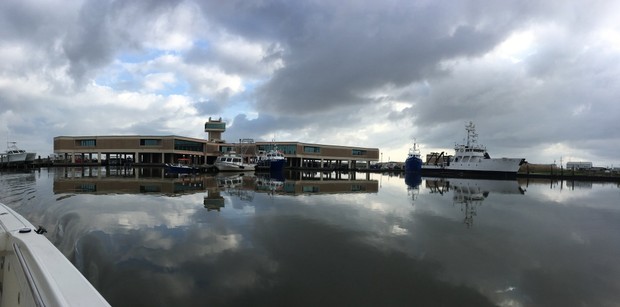Transcript below.
Read More “Space whales. Space. Whales. SPAAAAACE WHAAAAALES! Weekly Salvage: October 21, 2019” »
Over 15 years of ocean science and conservation online
I recently got an incredible opportunity to do some public science engagement. My friends’ daughter, who absolutely loves sharks, was turning 5 and having friends over for a shark (and pirate, and octonauts) themed birthday party. And she wanted to know if I would be willing to attend and answer the kids’ questions about sharks. … Read More “I was the entertainment at a 5th birthday party: A new favorite science communication gig” »
“Logic is a tweeting bird” – Spock, Star Trek
Social media can be a great tool for spreading and disseminating published science. Potentially it can reach a wide audience and for free !
Most platforms allow you to insert links to direct readers to the original paper or publication. If you are working in an area that is relevant to conservation or policy, social media can be a great way of getting papers to the right audience that may need that information (Parsons et al., 2014). Moreover, there is now increasing data that using social media can increase download and citation rates of scientific papers, which in turn is good for the careers of scientists in an academic setting.
Read More “To tweet to whom – a tweeting guide for marine scientists” »

Foghorn (A Call to Action!)
Flotsam (what we’re obsessed with right now)
The Levee (A featured project that emerged from Oceandotcomm)

As noted earlier, David and my paper on twitter, social media, Shark Week, and fake documentaries came out last week. Since scientific publishing has a “long tail” — the time between when we actually wrote the paper and when it was published, in this case, was almost 9 months — we thought it might be … Read More “Combating fake science in popular media – six months later” »

HAPPY FUN SCIENCE FRIDAY.
Let me begin by imploring any readers who are interested in a more ‘Open Ocean,’ to help support our crowd funding initiative – #OpenCTD.
http://www.rockethub.com/projects/26388-oceanography-for-everyone-the-openctd#description-tab
So for a number of years I have been celebrating Fun Science Friday; a mini-holiday that originated years ago when I was in graduate school. Our professor would bring Smarties to class each Friday, and we students would have some fun science exercise before diving into the more intricate nuances of the course. I was thoroughly enamored with FSF, and not just because of those delicious Smarties, and endeavored to spread FSF wherever I went (some places were more receptive than others). I have finally been convinced by the Southern Fried crew to move my rather informal celebration of FSF, where I normally post a fun science fact each Friday, to generating a short blog about what I would normally post. So to all the Southern Fried readers, welcome to Fun Science Friday!!
 Until March 9, 2013, I’ll be at sea. I love that phrase. At sea. For this expedition, we’re leaving from Jamaica, returning to Antigua, and spending several days on a research program separate from ours. I have a lot of travel and a little downtime to look forward to. When I started going to sea almost a decade ago, this meant that I carried a couple books and dozens of research papers, and traded them around with the rest of the science team, the crew, and the ship’s library.
Until March 9, 2013, I’ll be at sea. I love that phrase. At sea. For this expedition, we’re leaving from Jamaica, returning to Antigua, and spending several days on a research program separate from ours. I have a lot of travel and a little downtime to look forward to. When I started going to sea almost a decade ago, this meant that I carried a couple books and dozens of research papers, and traded them around with the rest of the science team, the crew, and the ship’s library.
Now, thanks to kindles and other e-readers, I can carry entire libraries with me, loading them up with all the books I want to read and stockpiling thousands of research papers. This. Is. Awesome.
So, if you find yourself with a kindle and a long stretch of travel time, consider checking out some of my favorite ebooks. I’ve read all of these over the last year and they all look great on an e-reader. This reading list should keep you occupied during the quieter moments of your travels.
 I’ve found that I enjoy certain types of music more when I don’t listen to the words too closely. However, a mild addiction to karaoke and a lifelong inability to “just let it go” has made it impossible for me to avoid knowing the lyrics.
I’ve found that I enjoy certain types of music more when I don’t listen to the words too closely. However, a mild addiction to karaoke and a lifelong inability to “just let it go” has made it impossible for me to avoid knowing the lyrics.
We’ve been known to criticize how science is portrayed in movies and television shows here on Southern Fried Science. Pop music is far from innocent when it comes to scientific misunderstandings, and it seems only fair that I criticize that genre as well. Here are some recent examples that have been driving me crazy.
Tip o’ the Hat to @kzelnio